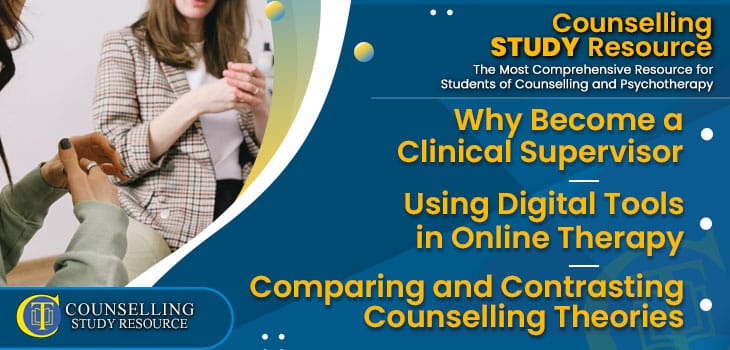See Counselling Skills Used in Real Sessions by Qualified Therapist
Real Sessions – Real Presentations – Real Skills
Gain the competence and confidence to use counselling techniques effectively!

In Episode 289 of the Counselling Tutor Podcast, your hosts Rory Lees-Oakes and Ken Kelly discuss this week’s three topics:
Five Reasons to Become a Clinical Supervisor
If you’ve been wondering how you can take your career a step further, Rory and Ken are here in this section to discuss 5 reasons why you might consider becoming a clinical supervisor:

Real Sessions – Real Presentations – Real Skills
Gain the competence and confidence to use counselling techniques effectively!
In this week’s ‘Practice Matters’, Rory speaks with Ellie Finch and Lesley Simpson-Gray on working with digital tools in online counselling such as video games, virtual reality, and an online sand tray.
The main points of this discussion include:

On-demand access to a rich lecture library covering theory, skills, and professional development for counselling students—Mapped to the UK awarding body criteria
“The Student Library has been BRILLIANT, I can’t recommend it enough!
It has been a lifeline in helping me prepare for practice and my first clients. If you’re considering it, go-for-it, it’s absolutely worth it!”
Kelly – Graduated and now in practice.
In this section, Rory and Ken discuss the importance of knowing the similarities and differences between the main counselling theories and modalities:
Five Reasons to Become a Clinical Supervisor

Get on-demand Certified CPD that is implementable in your practice
